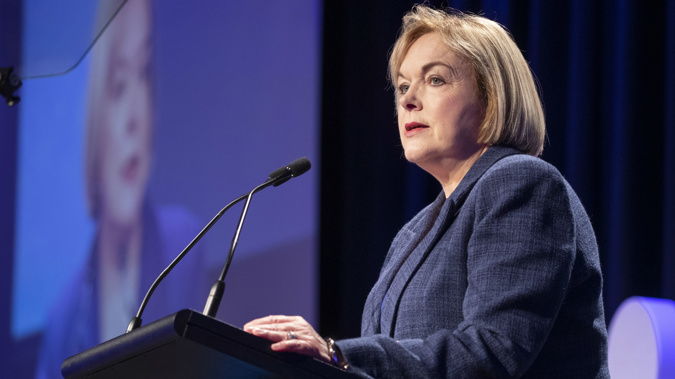
Judith Collins said the National Party would be looking to stand in the Māori seats because it wanted to be a voice for all New Zealanders.
It last stood in the seats in 2002 and decided not to stand in them under former leader Don Brash.
Collins and party president Peter Goodfellow today confirmed the decision, which the party's board has been considering for several months.
She and the party's 33 MPs are meeting for the first time this year in Wellington.
"We are a party for all New Zealanders," Collins said.
"Everything we do, we do with the aim of making New Zealand a better, more prosperous country for everyone.
"At the core of this is giving every New Zealander a voice in Parliament – making sure their interests and aspirations are at the heart of every political decision we make.
"With this in mind, the National Party believes we should be doing everything possible to represent every New Zealander, and will work towards having candidates in as many of the Māori seats as possible going forward.
"National has been absent from the Māori electorate contest for too long."
National has never held a Māori seat. There are seven at present, six of which of held by Labour and one of which is held by the Māori Party.
Māori voters are given the option of voting in a Maori electorate or in a general electorate.
The decision to withdraw from the Māori seats rankled with some of the party's former Māori MPs, such as Jo Hayes and Nuk Korako, but they made no headway under the leadership of John Key, Bill English or Simon Bridges.
Collins said National was proud of its record of delivering for Māori in Government.
The last National Government worked hard to raise the proportion of Māori school leavers with NCEA level 2 or above from 52 per cent to 75 per cent, increase the number of Māori with bachelor's degrees by 61 per cent and get 42,000 more Māori into jobs.
In her opening remarks to the caucus Collins has called on her MPs to stay focused and not get distracted by the "bait" tossed their way by the Government.
And she asked them to trust their colleagues.
Collins later refused to give examples of specifically what "bait" had been thrown their way by the Government.
"I'm not going to go into all of that because that would actually be taking the bait."
Deputy leader Shane Reti also couldn't give media a specific example of when the Government made attempts to distract the Opposition - but questioned the timing of the MIQ worker being sacked for an encounter with a returnee being made public.
"You wonder if the dalliance at the hotel with the security worker, was it trying to draw us down a path? Maybe? [It] has no utility for us here and now. It's important but we've said we want to focus on the vaccine."
Last year's election result saw the National Opposition caucus gutted from being the largest party in Parliament to just 33 MPs this term.
Ahead of the election, the party went through three leaders in as many months after Todd Muller rolled Simon Bridges who then resigned after 53 days and Collins was elected leader.
The caucus will also hear from the head of the Rural Leaders Trust and the former Deputy Chief of Army, Chris Parsons, as well as a former Australian Treasurer and Lord Michael Ashcroft to hear about American politics and Lord Daniel Hannan who will speak about UK politics.
Take your Radio, Podcasts and Music with you









